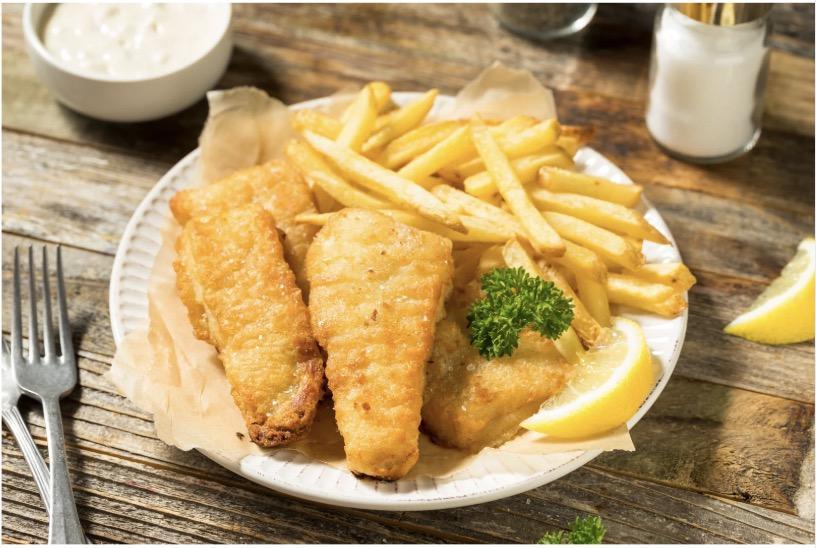Summary
This franchise business holds a solid position in the mid-tier dining market, specialising in seafood dishes with other meat options avalable served in a relaxed, family-friendly environment. Supported by a reputable parent brand, the addition of grill and sushi options broadens its customer base, while its affordable pricing enhances its competitiveness in mall and suburban retail spaces. The business thrives in both sit-down and takeaway formats, with many outlets located in high footfall areas. this store was established 2 years ago.
Give me more informationFully describe the business's activities?
1. Grill, Sushi and Seafood Preparation and Service
- Main focus: A wide variety of seafood, including sushi, hake, calamari, prawns, mussels, and kingklip.
- Fish Options: Grilled, deep-fried, or pan-fried to customer preference, frsesh oysters and sushi.
- Platters: Mixed seafood platters and combo meals are key menu sellers, particularly for groups or families.
- Sourcing: Fresh and sustainable seafood sources, often complying with SASSI (South African Sustainable Seafood Initiative) guidelines.
2. Grill Menu
- Variety: In addition to seafood, they also offer flame-grilled chicken, steaks, ribs, and burgers.
- Sides: Typical sides include chips, rice, vegetables, salad, and baked potatoes.
Vegetarian Options: Available for inclusivity of dietary preferences.
3. Sushi Bar
- Sushi Offering: A fully-fledged sushi menu including nigiri, sashimi, California rolls, fashion sandwiches, rainbow rolls, and special platters.
- Prepared Fresh: Sushi is prepared fresh to order at an in-house sushi bar by trained sushi chefs.
- Promotions: Sushi specials are commonly used as promotional drivers to increase mid-week foot traffic.
4. Beverage Service
- Beverages: A range of soft drinks, fresh juices, milkshakes, coffees, and teas.
- Alcohol: Licensed to serve alcohol, with a selection of wines, beers, spirits, and cocktails to complement meals.
5. Family and Kids-Oriented Services
- Kids’ Menu: Tailored meals for children at value pricing.
- Play Areas: This location includes a shared play area with an additional restaurant also owned by the seller.
- Promotions: Family combos and value meals designed for group sharing.
6. Takeaway and Delivery
- Online Ordering: Enabled through their own platforms or third-party delivery services (e.g., Uber Eats, Mr D).
- Packaging: Environmentally conscious packaging is often promoted.
7. Marketing and Loyalty Programs
- Marketing: National and local campaigns, in-store promotions, seasonal specials, and event-based campaigns (e.g. school holidays).
- Loyalty Programs: Often integrated with the well-known corporate groups' rewards platforms.
- Social Media Presence: Actively maintained to drive customer engagement and communicate offers.
8. Health & Safety Compliance
- Food Safety: Strict hygiene protocols, including HACCP-aligned practices in food preparation and storage.
- Staff Training: Regular training for kitchen and front-of-house staff on safety, customer service, and product knowledge.
9. Franchise Operations
- Franchise Model: Operates under a franchise system with support from the well-known corporate group, including supply chain, training, marketing, and operational assistance.
- Standardisation: Ensures menu, quality, pricing, and branding consistency across all locations.
How does the business operate on a daily basis?
- Kitchen Preparation: Chefs and kitchen staff arrive early to begin food preparation. This includes defrosting, marinating, prepping vegetables, preparing sushi rice, and setting up the grilling and fryer stations.
- Sushi Station: Sushi chefs prepare ingredients such as fresh fish, vegetables, and rice, ensuring readiness for lunch service.
- Cleanliness & Hygiene Checks: Managers perform hygiene inspections, checking fridges, prep stations, and cleanliness of the premises in line with HACCP standards.
- Front-of-House Setup: Waitstaff prepare the dining area – setting tables, checking POS (point-of-sale) systems, and ensuring menus and promotional materials are in place.
- Daily Briefing: A short team meeting is held to discuss the day’s specials, targets, bookings, VIP customers, and any specific events or promotions.
2. Trading Hours (Typically 09:00 – 21:00)
Lunch Service (12:00 – 15:00):
- Focus on quick turnaround time for business lunches, shoppers, and families.
- Sushi orders pick up, especially if there are midweek sushi specials.
- Takeaway and delivery services begin operating alongside in-store dining.
Afternoon Lull (15:00 – 17:00):
- A quieter period used for staff rotation, stock replenishment, and kitchen resets.
- Continued takeaway/delivery order fulfilment.
- Floor staff reset and prep for evening service.
Dinner Service (17:00 – 21:00):
- Peak trading time, often busy with families, couples, and group bookings.
- Popular menu items: seafood platters, sushi platters, and grill combos.
- Alcoholic beverage orders increase; bar area gets more active.
- Managers monitor floor activity, attend to customer service, and maintain table turnover.
3. Staffing and Roles
Front-of-House:
- Hosts manage table bookings and walk-ins.
- Waiters and runners serve food, upsell specials, and manage billings.
- Bartenders handle drinks, both alcoholic and non-alcoholic.
Back-of-House (Kitchen):
- Line cooks manage the grill, fryer, seafood prep, and cold kitchen.
- Sushi chefs prepare and roll sushi to order.
- Dishwashers ensure a continuous cycle of clean crockery and kitchen utensils.
Management:
- The restaurant manager oversees all operations, including staff management, stock levels, customer experience, and daily reporting.
- Assistant managers may focus on kitchen operations, customer relations, or admin duties.
4. Takeaway & Delivery
- Orders are received via in-store phone calls, online platforms, or third-party apps like Mr D and Uber Eats.
- A separate dispatch station handles packing and coordinating delivery drivers to avoid disruption of dine-in operations.
5. Closing Routine (21:00 – 22:00)
- Kitchen Shutdown: Cleaning and sanitising all prep areas and equipment. Any perishable unused stock is labelled and refrigerated properly.
- Inventory Checks: Stock usage is recorded, and low stock items are noted for ordering.
- Daily Cash-Up: Managers perform cash reconciliations, settle card machines, and close the POS system.
- Clean Down: Full front-of-house cleaning, restocking restrooms, and locking up.
What Advertising/Marketing is carried out?
What competition exists?
How could the profitability of the business be improved?
Give a breakdown of staff/ functions/ length of service?
Do any have management potential?
How involved is the Owner in running the business?
When does the current lease end?
What are the trading hours?
What are the main assets of the business?
Strengths?
- Diverse Menu - Offers a wide range of seafood, grill items, and sushi – appealing to various customer tastes.
- Prime Mall Location - High foot traffic from shoppers, entertainment goers, and families enhances daily visibility and walk-in customers.
- Loyal Customer Base - Regulars contribute to consistent revenue and word-of-mouth marketing.
- Franchise Support - Access to marketing, supply chain efficiencies, training programs, and operational support from the franchisor.
- Experienced Staff - Trained staff maintain consistent service levels and uphold franchise standards.
Weaknesses?
- Operational Constraints - Bound by franchise systems, reducing flexibility to innovate or adjust pricing/menu locally.
- Dependency on Foot Traffic - Sales are highly dependent on mall trade and events; performance may drop during quiet periods or load-shedding.
- Limited Differentiation - Competes with similar seafood and grill restaurants in the same or nearby locations.
Opportunities?
- Menu Innovations - Seasonal specials, healthier options, or regional tastes can attract new demographics and repeat visits.
- Events & Promotions - Hosting sushi nights, kids’ specials, or sport-themed promotions can increase mid-week and off-peak traffic.
- Loyalty Programs - Leverage franchise systems to reward regulars and attract new customers through digital engagement.
Threats?
- Local Competition - Competing eateries in the mall or vicinity may offer aggressive promotions, impacting footfall and pricing power.
What is the reason for the sale?

Access to the number one business broking tool to get your business sold.
We've got you covered!
We offer an innovative and intuitive
solution for selling your business, franchise and premises
Promote
your business for sale
Reach
the right audience
Gain
more exposure

More businesses you may like
More similar, inspiring businesses for sale
Entecom Franchise Opportunity ( Launch your own Consultancy and Training Practice) Pretoria
POA
YNP - R 0
This is a vibrant pub and grill situated in Pretoria East
4,400,000
YNP - R 1,205,012
Exclusive Seafood Restaurant Franchise Opportunity JHB North
1,600,000
YNP - R 700,000
Knowledge Bank
Get the latest information, valuable tips and share in the professional knowledge of business experts on selling or buying a business
Buyers
Franchisor and Franchisee Relationship: A Breakdown
The relationship between a franchisor and a franchisee is probably one of the most important aspects
E-commerce Business for Sale: The Benefits
Whether you’re looking into buying an e-commerce business for sale because you’re passionate abo
Buying a Manufacturing Business for Sale
There are several good reasons why a manufacturer or an entrepreneur might be considering buying ano
Sellers
Unlocking Opportunities: Selling Kindergarten, Pre-School and Early Childhood Development Centre Franchises Online with Business for Sale
We're excited to announce our latest endeavour aimed at fostering growth and expansion in the early
Empowering Franchisors: A Refined Approach for Exponential Sales Growth
Empowering Franchisors: A Refined Approach for Exponential Sales Growth
6 Steps To Selling A Small Business In South Africa.
6 Steps To Selling A Small Business In South Africa.













